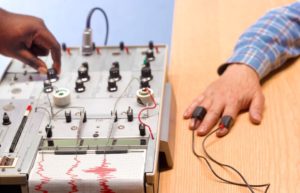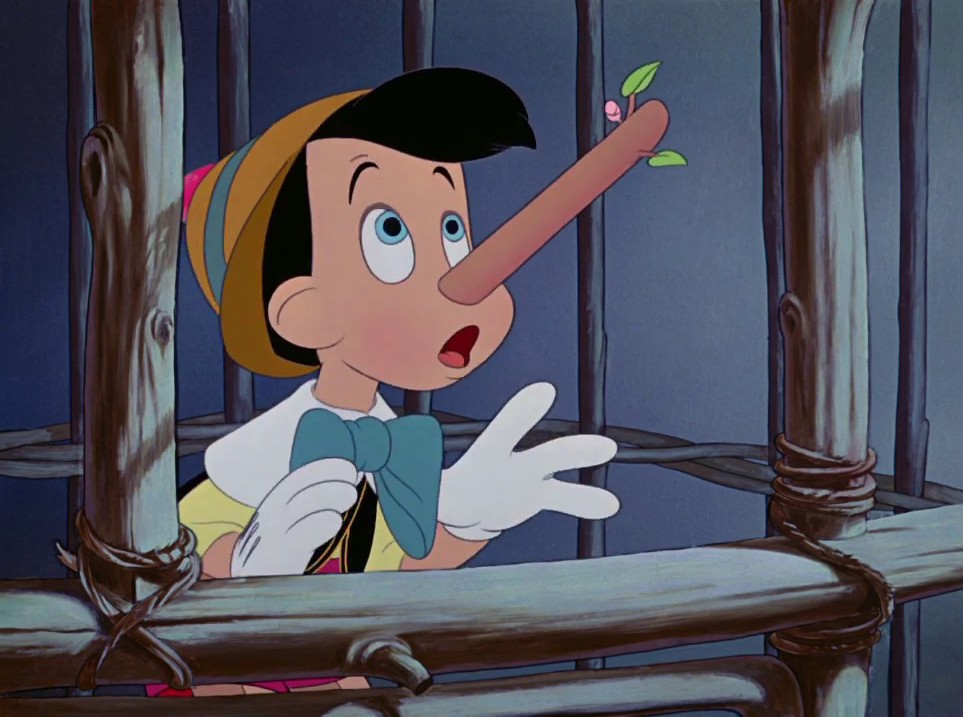Most of the time honesty is the best policy…but not always. Under some circumstances, telling a white lie may even help bolster social connections. Prosocial lies—lies that benefit others—are grounded in compassion and can actually build trust, according to a study from the University of Pennsylvania’s Wharton School of Business. Indeed, a white lie may be the best course of action if you intend to protect or benefit the other person.
Imagine you are a bridesmaid at your best friend’s wedding and she asks you moments before walking down the aisle, “How do I look?” This is not the moment to tell her your thoughts about the neckline being unflattering. If she had asked you the same question four months earlier while trying on wedding dresses, the unfiltered truth might have been useful but not now. If there is no time or ability to make a change, deception might be welcome.
 Source: Getty Images
Source: Getty Images
Context matters. So does intention. There is a difference between being mean and being honest. If an employee isn’t performing well, focusing on ways they can improve will be more helpful than insulting their past work. “Just being honest” is never an excuse to hurt someone.
Prosocial lies are told to protect relationships and are motivated by caring. Anti-social lies are told for personal gain or to cover up misdeeds. Thankfully, research from The University of Alabama at Birmingham shows that these types of liars are the exception and not the rule. In other words, everyday communication is more honest than assumed. “That said, there are these few prolific liars out there,” said Timothy Levine, Distinguished Professor and chair of the Department of Communication Studies in the UAB College of Arts and Sciences. “And I think this study showed that they are a real thing. There is that kind of top 1 percent who are telling more than 15 lies per day, day in day out.”
No surprise, narcissists tend to tell a lot of anti-social lies. Their motivations for lying abound:
- To bolster self-esteem
- To avoid shame
- To impress others
- To control others
- To exploit others
- To hurt others
- An inability to bear the truth
Self-gain and self-promotion are often at the heart of a narcissist’s lies but not always. Sometimes they lie just because. I had a patient whose narcissistic partner would lie about what he ate for lunch. Attorney Rebecca Zung writes about what happens when you catch a narcissist in a lie. They will either deny, deflect, devalue, and/or dismiss you.
Deny
- “It wasn’t me.”
- “I didn’t do that.”
- “That’s not what happened.”
They will deny any and all of your allegations.
Deflect
- “You did this.”
- “This happened because someone else did this.”
- “Someone else dropped the ball.”
They will deflect the blame onto someone else—including you.
Devalue
- “This is your fault.”
- “You are the problem.”
- “You caused this.”
- “Your past or mistakes caused this.”
- “Your past solicited this.”
- “I did this because of you.”
In addition to deflecting blame, they will devalue you and make you wish you had never confronted them. Devaluing is a huge part of the narcissistic relationship. When it comes to devaluing you, catching them in a lie will be no different than dealing with any other conflict.
Dismiss
- “It doesn’t matter.”
- “Can we just move on.”
- “I don’t want to talk about this right now.”
- “Just forget it.”
They will sweep everything that is important to you under the rug. Your feelings won’t be acknowledged or valued. They will do this in order to keep you under their control and to remain in the drivers seat.
 Source: Getty Images
Source: Getty Images
It’s not easy to spot a liar. Contrary to what detective shows tell us, there is little evidence that specific behaviors such as gaze aversion or fidgeting are indicators of dishonesty. Fortunately, there are some data-driven strategies to boost honesty:
- Ask the person to put their hand on their heart 🖐🫀
According to a study this simple gesture prompts more truthful replies. - Pour some coffee ☕️
Caffeine helped sleep-deprived individuals resist unethical behavior. - Moral mornings 🌅
Self-control is at its height in the morning and is depleted throughout the course of the day. Studies show that people are less likely to cheat, lie, steal, or engage in unethical behavior early in the day. Keep this in mind next time you want to ask your partner an important question or scheduling a key business meeting. A power breakfast may be more revealing than a fancy dinner. - Turn up the lights 💡
People are more likely to lie and cheat in the dark. Researchers speculate it’s the sense of anonymity afforded in a darkly lit room. - Tidy up 🧹
People tend to cheat more in messy environments. The underlying theory is that a messy space functions as a metaphor for lax moral standards. - Hang portraits 🖼👀
Eyes and dot patterns that resemble eyes have been shown to positively influence behavior. When people believe they are being watched they are kinder, they cheat less and they are more generous.
Bottom Line: Lies can only be justified when the intent is to benefit another.
I wish you all the best,
Dr. Samantha Boardman






